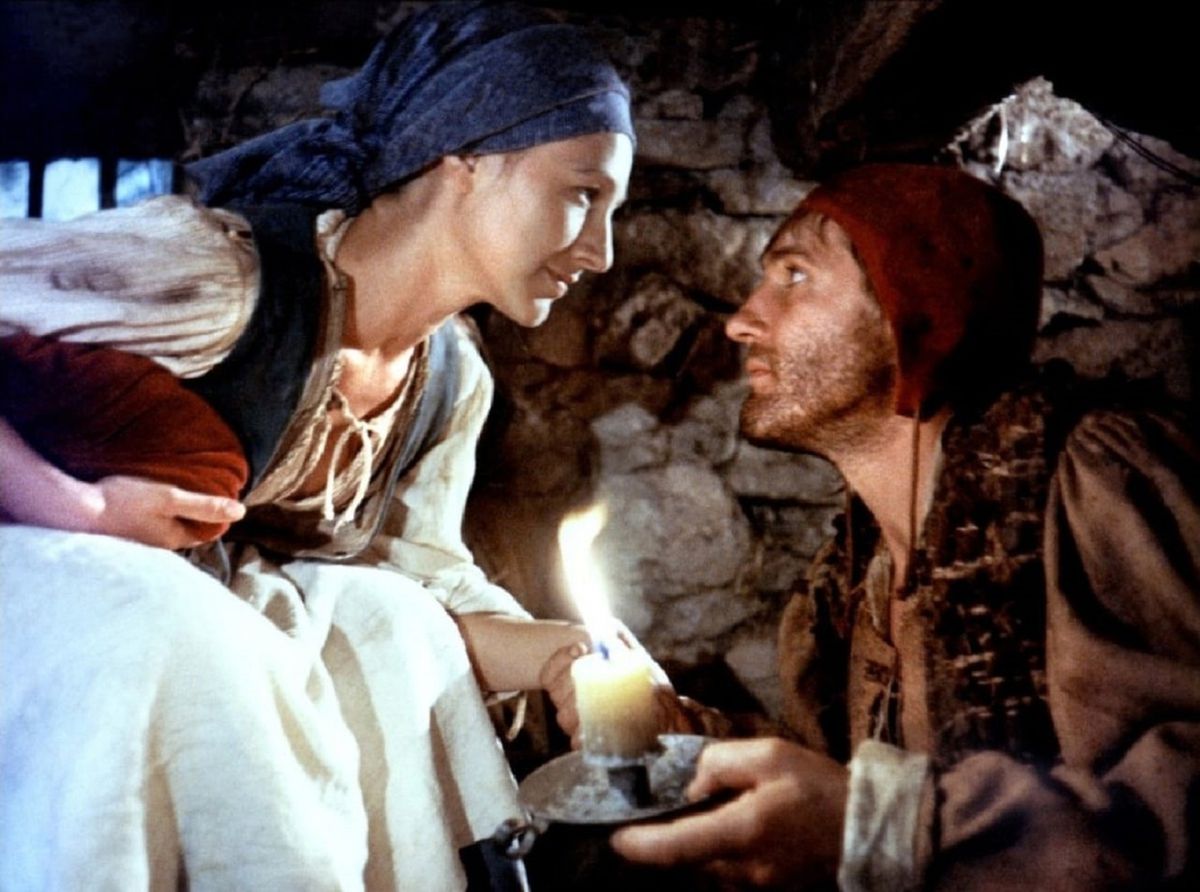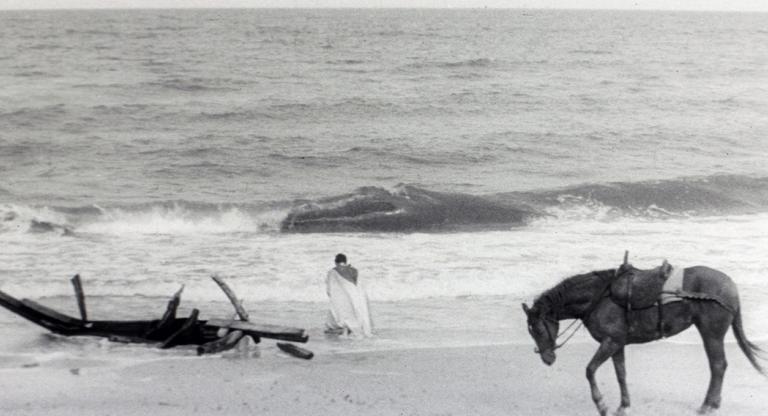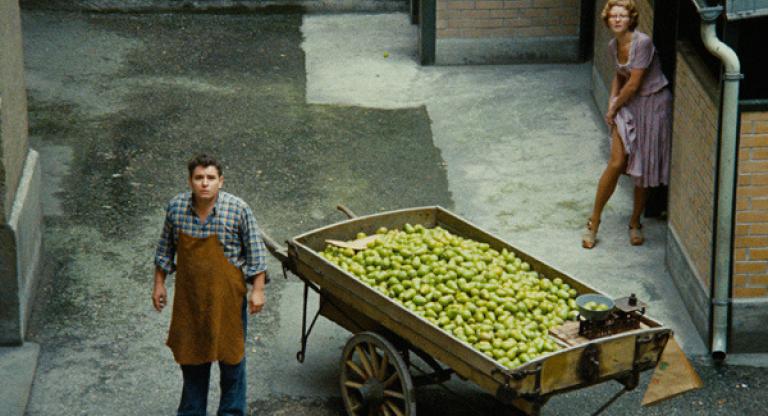In a small French village in 1542, Martin Guerre married Bertrande de Rols in a joyous exchange of vows and priestly blessings. Though young Martin’s impotence, a topic of much neighborly conversation and entertainment, was eventually cured, the union remained unhappy; Martin was neglectful of and cruel to his wife and child, and often publicly humiliated by his father for failing to fulfill his duties on the farm. One day, Martin disappeared before dawn, and was gone for over eight years, during which time his parents both died of broken hearts and his ever-chaste wife grew increasingly bereft. Where might a gangly, tepid youth, displeased with the vocation he’d inherited, go with his freedom? What changes would nearly a decade of soldiering and independence have wrought on him, his abandoned wife, and home?
Pertinent questions, when he returns to the village with the broad-shouldered effervescence and unmistakable visage of Gerard Depardieu, whose virility in the fields is matched only by that in the bedroom. So testifies Bertrande (Nathalie Baye), in the eventual trial to determine whether this charming ox, who fathered two more children with her in the three years following his return, is, in fact, Martin Guerre—or a skillful imposter, as his uncle and several men of a nearby village attest. Director Daniel Vigne’s 1982 film captures the surreality and heartbreak inherent to the infamous true case, interweaving a convincingly tactile representation of 16th-century farm life with hints of the uncanny to convey the fertile grounds for such a narrative to unfold.
Though the general facts surrounding Martin Guerre’s disappearance, reappearance, and re-reappearance were recorded and published in the 1560s, much remains tantalizingly open to speculation. Of particular interest are the heart and mind of Guerre’s wife: Was eight years truly a sufficient period of absence to make such a misidentification possible? If not, why would she risk sharing her bed with the imposter and bearing his essentially illegitimate children? The film’s interpretation is informed by that of historian and script consultant Natalie Zemon Davis, whose book of the same title led to a not-passionless exchange in the pages of The American Historical Review on the oft-hazy distinction between reconstruction and invention in the writing of such histories and the perils of applying anachronistic critical lenses to the interpretation of long-dead persons’ intentions.
Co-written by the late, great Jean-Claude Carriere, The Return of Martin Guerre is more romance than mystery. The electric chemistry between Depardieu and Baye suggests more narrative closure than one would think possible, given the source material. Featuring a fantastic score from Michel Portal (whose credits include another Carriere-scripted masterpiece, Oshima’s Max Mon Amour [1986]) in sync with the few moments of paganistic strange peppered throughout, the film is a delightful demonstration that “fact” can, particularly in such vivid representations, be as rich, weird, and ultimately sad as fiction.
The Return of Martin Guerre is streaming on Tubi.



